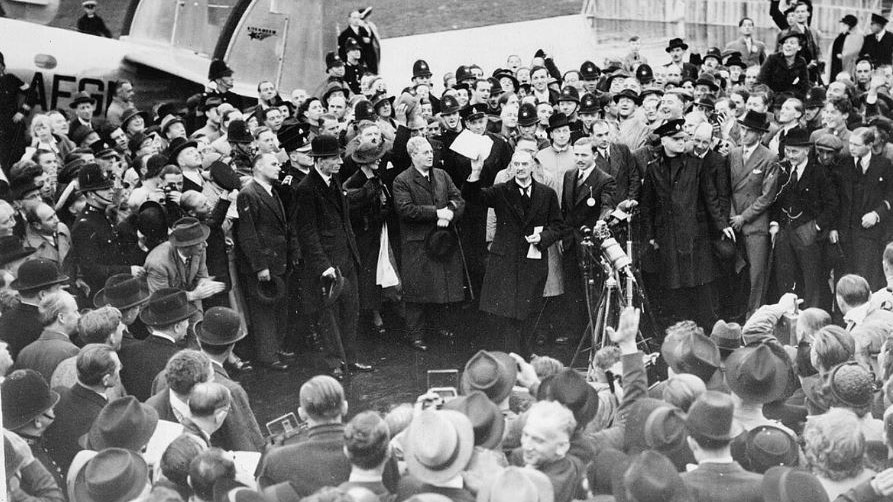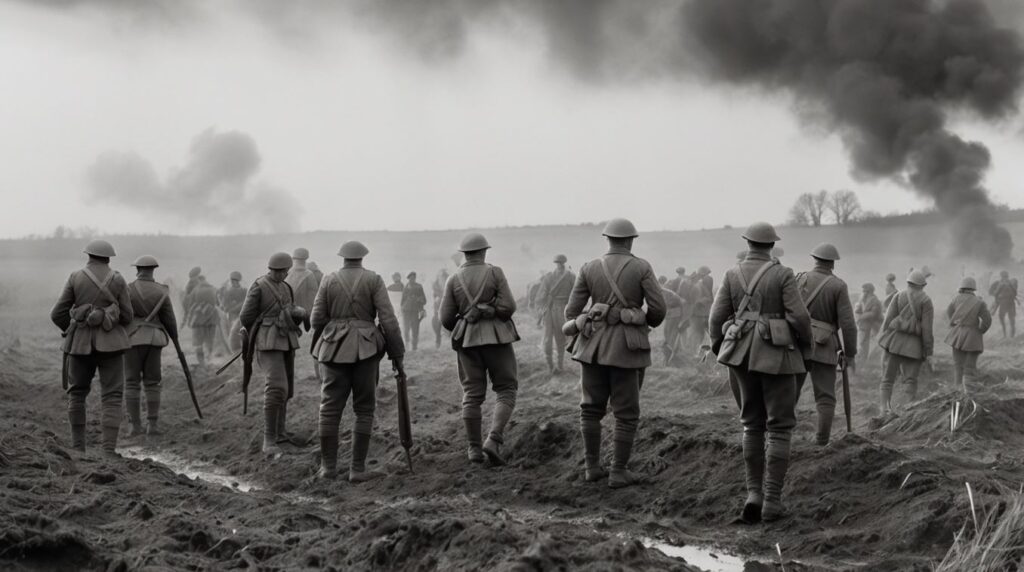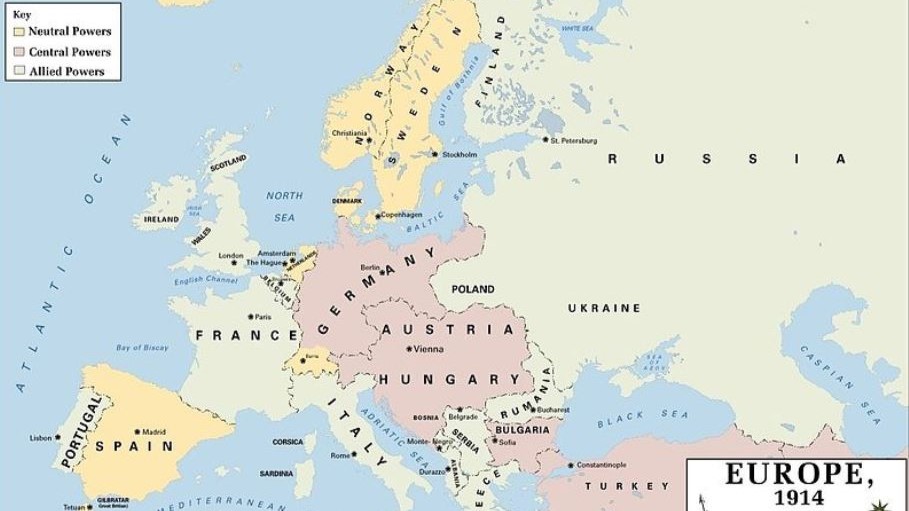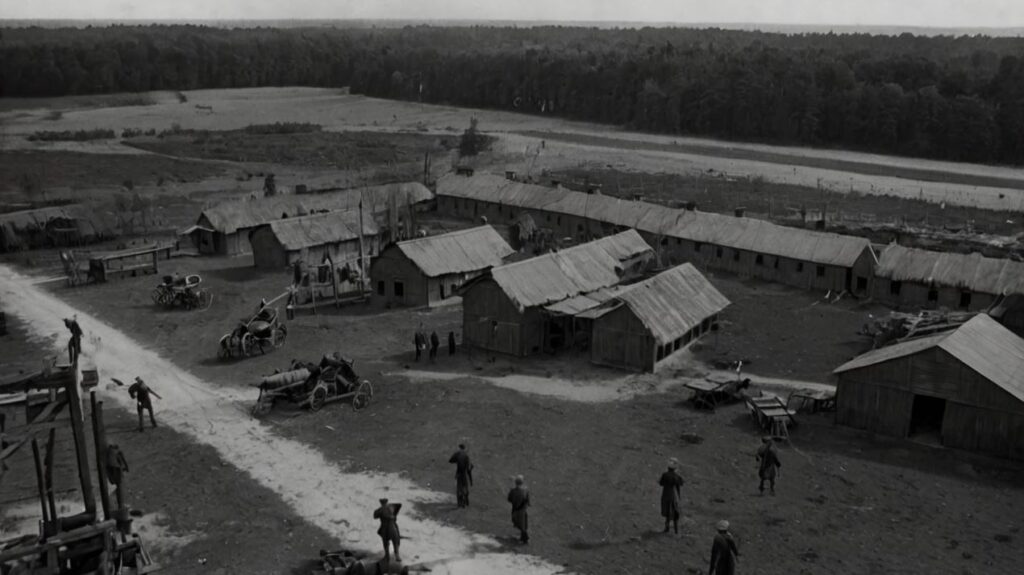The Battle of Kursk, fought in the summer of 1943, stands as one of the most pivotal engagements of World War 2.
This massive confrontation between German and Soviet forces not only represented the last major German offensive on the Eastern Front but also marked a turning point in the war.
But what if the outcome had been different? What if Germany had emerged victorious at Kursk? This article explores the potential consequences of such a scenario, examining how it might have altered the course of World War II and shaped the post-war world.
- 1. Setting the Stage: The Battle of Kursk
- 2. How Germany Could Have Won the Battle of Kursk
- 3. Immediate Consequences of a German Victory at Kursk
- 4. Potential Strategic Shifts in the East
- 5. Long-Term Consequences of a German Victory at Kursk
- 6. The Manhattan Project and the Atomic Bomb
- 7. Final Thoughts on a German Victory at Kursk
- Further Reading
1. Setting the Stage: The Battle of Kursk
By the summer of 1943, Germany found itself in a precarious position on the Eastern Front.
The defeat at Stalingrad and the failure of Operation Barbarossa had severely weakened Hitler’s war efforts.
Nevertheless, the Nazis managed to amass nearly 800,000 troops and thousands of tanks for one last major offensive push eastward.
The battlefield was centered around a large salient (bulge) in the Soviet lines near the city of Kursk.
This salient, measuring about 150 miles north to south and 100 miles east to west, presented an tempting target for German strategists. If they could pinch off this bulge by attacking from the north and south simultaneously, they stood to encircle and destroy a significant portion of the Soviet army.
Opposing the German forces were nearly 2 million Soviet troops, backed by over 3,500 tanks.

The Soviets, having gained intelligence about the impending German attack, had prepared extensive defensive fortifications, including multiple trench lines, anti-tank positions, and vast minefields.
The battle that ensued was massive in scale, involving thousands of tanks, aircraft, and artillery pieces on both sides. It lasted from July 5 to August 23, 1943, and is considered by many to be the largest tank battle in history.
2. How Germany Could Have Won the Battle of Kursk

While the actual battle ended in a decisive Soviet victory, there were several factors that, if altered, could have tipped the scales in Germany’s favor:
1. An Earlier Attack: One of the most significant “what-ifs” revolves around timing.
Field Marshal Erich von Manstein, one of Germany’s most capable generals, argued forcefully for launching the offensive in April or May, immediately following the spring thaw.
This would have caught the Soviets before they had time to build up their formidable defensive positions and would have given the Germans the advantage of striking while the Red Army was still recovering from its exhaustive winter offensive.
The delay until July proved catastrophic for German chances of success.
During these crucial months, the Soviets, under the direction of General Georgy Zhukov, transformed the Kursk salient into an impregnable fortress. They constructed multiple defensive belts, laid hundreds of thousands of mines, and dug extensive anti-tank ditches.
The Red Army also used this time to amass substantial reserves of men and materiel, ultimately deploying over 1.3 million soldiers, 3,600 tanks, and 2,400 aircraft to counter the German attack.
The delay also allowed Soviet intelligence to gather detailed information about German plans through their extensive spy network and partisan operations. This intelligence proved invaluable in preparing specific countermeasures against German tactics and equipment.
2. Wider Flanking Maneuvers: The German plan involved a relatively direct assault on the Kursk salient.
The German plan for Operation Citadel involved a relatively direct assault on the Kursk salient, but military analysts and historians have long argued that a wider flanking movement, particularly from the south, could have been significantly more effective.
This alternative strategy would have allowed the Wehrmacht to potentially encircle larger Soviet forces and critically disrupt their carefully positioned reserves.
The southern thrust, led by Army Group South, might have achieved greater success by striking deeper into Soviet territory before turning north. This would have forced the Red Army to commit their reserves earlier and in less favorable positions.
A wider envelopment would have made it more difficult for the Soviets to concentrate their anti-tank defenses, which proved so devastating to the German armored spearheads in the actual battle.
Such a maneuver would have been more in line with traditional German operational doctrine of movement and encirclement (Bewegungskrieg), which had proved highly successful in earlier campaigns.
The broader frontage would have also prevented the Soviets from concentrating their artillery and anti-tank guns in such density, potentially allowing the German armor to achieve the breakthrough that eluded them in the actual battle.
3. Better Coordination: The German attack at Kursk suffered significantly from a lack of overall coordination between Army Group Center in the north and Army Group South.
A more unified command structure and better synchronization between these two forces could have markedly improved the effectiveness of the German offensive.
The disjointed nature of the attack allowed the Soviets to shift reserves between sectors more efficiently than they should have been able to.
Model Guderian, the architect of German armored warfare, had consistently advocated for unified command in major operations. At Kursk, the absence of this principle meant that the northern and southern pincers of the attack often operated independently rather than in concert.
This lack of coordination also affected logistics and air support distribution, with neither army group able to fully support the other during critical phases of the battle.
A single commander with authority over both army groups could have ensured better timing of attacks and more effective use of limited resources.
4. Committing Reserves: At crucial moments during the battle, particularly during the decisive engagement at Prokhorovka, the Germans had uncommitted reserves that could have potentially tipped the balance of the entire operation.
The II SS Panzer Corps, with elements of the Leibstandarte SS Adolf Hitler Division held in reserve, might have achieved the crucial breakthrough if committed at the critical moment. Field Marshal von Manstein later argued that these fresh forces, if deployed decisively, could have exploited temporary Soviet vulnerabilities.
The failure to commit these reserves reflected a broader strategic uncertainty in the German high command, torn between the immediate needs of the Kursk offensive and concerns about maintaining strategic reserves for other sectors. This hesitation proved costly, as the Soviets were able to stabilize their positions and bring up their own reserves before the Germans could achieve a decisive breakthrough.
3. Immediate Consequences of a German Victory at Kursk
Had Germany succeeded in winning the Battle of Kursk, the immediate effects would have been significant and far-reaching, potentially altering the trajectory of the Eastern Front campaign and the broader course of World War 2.
Stabilization of the Eastern Front
A German victory would have likely allowed them to establish a more defensible line, potentially stalling Soviet offensives for months.
This stabilization would have enabled the Wehrmacht to reorganize its forces, establish better defensive positions, and potentially transfer some units to other threatened sectors.
The Germans could have shortened their lines significantly, making them less vulnerable to Soviet breakthrough attempts and reducing the strain on their increasingly scarce manpower.
Boost to German Morale
After the catastrophic defeat at Stalingrad, a major victory at Kursk would have been a tremendous morale boost for German forces and the home front.
Such a success would have reinforced faith in German military leadership and possibly strengthened civilian resolve to continue the war effort. It might have also improved German diplomatic position with neutral countries and boosted the morale of Germany’s remaining allies.
Soviet Losses
The Soviets could have lost up to a quarter of their army if the Germans had succeeded in encircling the Kursk salient.
This would have been a severe blow to Soviet manpower and might have significantly impacted their ability to launch major offensives in the near term.
The loss of experienced troops, commanders, and substantial amounts of military equipment would have forced the Soviets to spend considerable time rebuilding their forces.
The psychological impact of such a defeat might have affected Stalin’s relationship with his military leadership and possibly led to another round of purges in the Red Army command structure.
4. Potential Strategic Shifts in the East
The ripple effects of a German victory at Kursk could have led to significant strategic shifts in the conduct of the war:
Armistice Possibilities
One of the most intriguing possibilities is that of an armistice between Germany and the Soviet Union.
Historical records show that even during the actual Battle of Kursk, there were probing attempts through Swedish intermediaries to sound out the possibility of a separate peace. A German victory might have strengthened these efforts.
If an armistice had been reached, it would likely have involved a return to something resembling the 1939 borders.
However, Hitler’s obsession with holding onto Ukraine and its resources would have been a significant obstacle. Additionally, Stalin might have used these negotiations as a bluff to ensure the Western Allies proceeded with their plans for a second front.
Changes to Allied Strategy
A German victory at Kursk, especially if followed by an armistice with the Soviet Union, would have forced the Western Allies to reconsider their strategy:
D-Day Delayed or Cancelled: The planned invasion of Normandy might have been delayed or even cancelled. Without the pressure of ongoing Soviet offensives in the East, Germany would have been able to shift significant forces to defend against an invasion in the West.
Mediterranean Focus: Instead of a cross-channel invasion, the Allies might have opted to focus on the Mediterranean strategy favored by Winston Churchill. This could have involved a stronger push through Italy, possibly including landings in Greece or the Balkans.
“Pacific First” for the United States?: There’s a possibility, albeit a slim one, that the United States might have considered switching to a “Pacific First” strategy. While President Roosevelt was committed to defeating Germany first, a scenario where the Eastern Front was stabilized and a cross-channel invasion looked unfeasible might have led to calls for focusing on Japan. However, given Roosevelt’s conviction that Germany was the greater threat, this scenario seems less likely.
5. Long-Term Consequences of a German Victory at Kursk
The potential long-term consequences of a German victory at Kursk are far-reaching and thought-provoking:
Altered Map of Post-War Europe: If the war had ended with Germany and the Soviet Union reaching an armistice, the map of post-war Europe would have looked dramatically different. Countries like Romania, Bulgaria, Hungary, and possibly Poland might have avoided becoming part of the Soviet sphere of influence.
Impact on the Cold War: With a potentially different division of Europe, the nature of the Cold War as we know it would have been fundamentally altered. The Iron Curtain might have been drawn along different lines, or might not have existed in the same form at all.
Changes to the Pacific War: If the United States had shifted more resources to the Pacific earlier, it’s possible that the war against Japan might have concluded sooner. However, this also raises questions about the development and use of the atomic bomb.
6. The Manhattan Project and the Atomic Bomb
The potential impact on the Manhattan Project and the use of atomic weapons is one of the most intriguing aspects of this alternate scenario:
Project Urgency: If the war in Europe had stabilized and the focus had shifted more to the Pacific, would the Manhattan Project have maintained the same level of urgency and resources?
Use Against Japan: If the atomic bomb had been ready earlier, or if Japan had held out longer due to fewer resources being committed to the Pacific initially, how might this have affected the decision to use the bomb?
Use Against Germany: In a scenario where Germany remained a formidable enemy for longer, might the first use of atomic weapons have been against German targets instead of Japanese cities?
7. Final Thoughts on a German Victory at Kursk
Exploring “what if” scenarios like a German victory at Kursk provides valuable insights into the complex interplay of factors that shaped World War 2 and its aftermath.
While Germany’s actual defeat at Kursk helped pave the way for Soviet advances and ultimately contributed to the Allied victory, a different outcome could have dramatically altered the course of the war and the post-war world.
It’s important to note that while the Germans could have potentially won the Battle of Kursk through different tactics or timing, this victory alone would not have been enough to win the war. The underlying industrial and manpower advantages of the Allies, particularly when considering the United States’ enormous productive capacity, meant that Germany’s long-term prospects remained bleak.
Nevertheless, a German victory at Kursk could have extended the war, changed its character, and potentially resulted in a very different post-war order.
It might have led to a Europe divided along different lines, altered the timeline of the Pacific War, and even impacted the development and use of atomic weapons.
Ultimately, the actual outcome of Kursk – a decisive Soviet victory – marked the end of Germany’s strategic offensive capabilities in the East and paved the way for the Soviet counteroffensives that would eventually push all the way to Berlin.
The failure of the German offensive at Kursk, combined with the Allied landings in Sicily which occurred during the battle, marked the beginning of the end for Nazi Germany.
In considering these alternate scenarios, we gain a deeper appreciation for the pivotal nature of the Battle of Kursk and the cascading effects that major military engagements can have on global events. While we can never know for certain how history might have unfolded differently, these explorations enhance our understanding of the delicate balance of factors that shaped the outcome of World War 2 and the world we live in today.
Further Reading
I hope you have found this blog post about What If Germany Had Won the Battle of Kursk? interesting. You may be interested to read more about other conflicts, such as the American Civil War and World War 1.
Here are some other specific World War 2 articles:
- Who were the Ghost Division of World War 2?
- What were the German Special Forces called in World War 2?
- What Side was Ireland on in World War 2?
- Who were the Main Dictators of World War 2?
- Why did France lose so easily in World War 2?
You may also be interested in these World War 1 articles:
- The Haunting Russian Zombie Legends of World War I
- White Friday: A WW1 Tragedy on the Italian Front
- Militarism, Alliances, Imperialism, Nationalism: The MAIN causes of WWI
- Germany’s World War 1 Turnip Winter
- Did Any Civil War Veterans Serve in World War 1?
You may also enjoy these articles exploring ‘What If’ scenarios:






